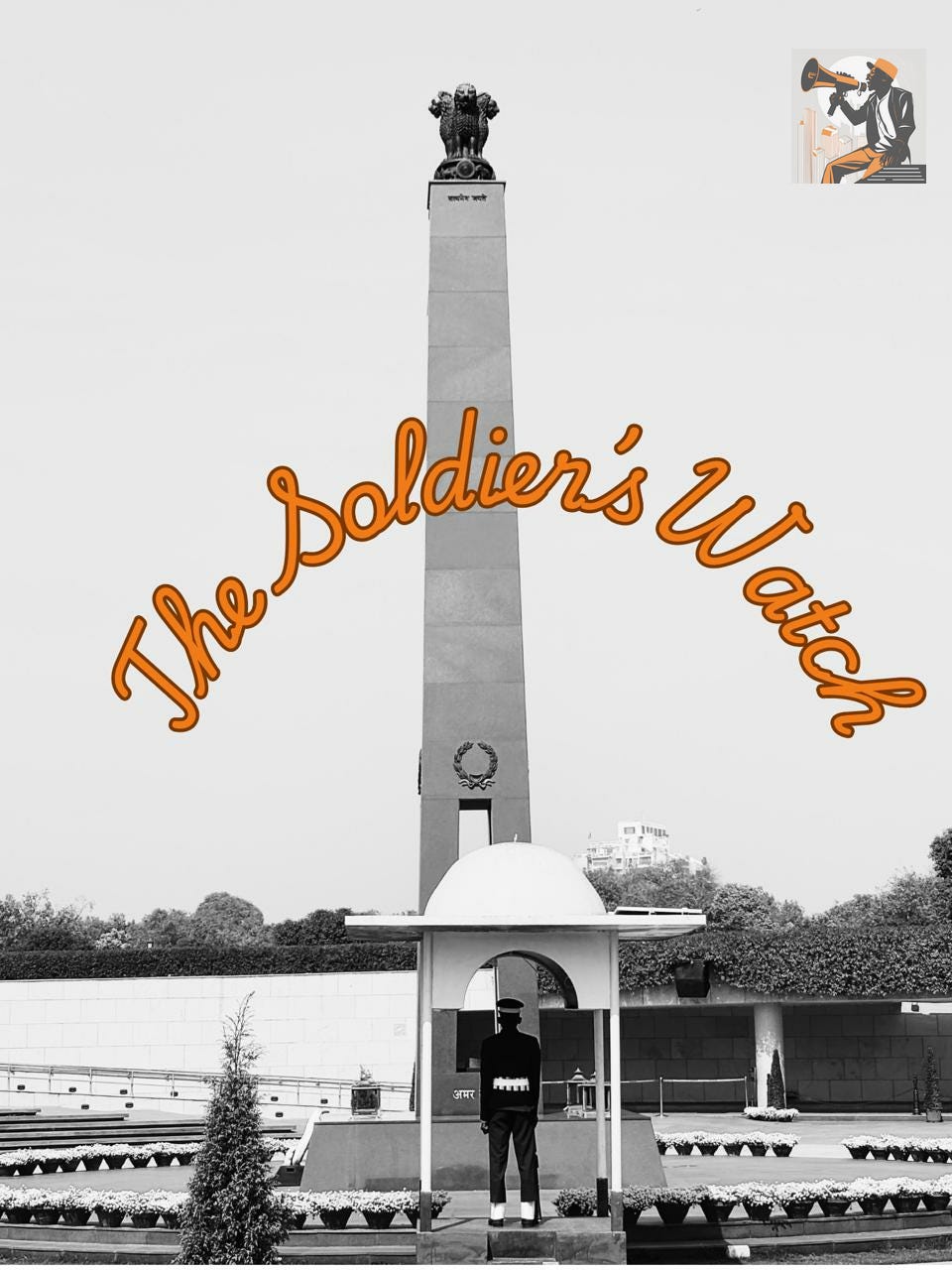I recently visited the National War Memorial in India. It wasn't planned—I just happened to be there. What caught my attention wasn't the architecture or the inscriptions, but a soldier standing guard at the eternal flame. His posture was impeccable, his eyes sharp with focus. There was an intensity in his presence, as if he truly believed an enemy could strike at any moment.
Most of us will never see soldiers in action, and perhaps that's why we don't fully grasp what it takes for them to do what they do. Watching him, I couldn't help but wonder—when was the last time I approached my own work with that level of intensity?
Perhaps that's part of the disconnect. We go about our comfortable lives without truly understanding the discipline, commitment, and sheer effort it takes to protect them. Sometimes, all it takes is a brief glimpse of a soldier on duty to put things into perspective.
A few years ago, I heard author Diksha Dwivedi speak about her father, a soldier who fought in the Kargil War. She wrote "Letters from Kargil," a book filled with real correspondence from soldiers to their families. Through those letters, you don't just meet warriors—you meet sons, brothers, fathers, friends, partners. What struck me most was the vulnerability of these heroes. They were scared, yet they kept moving forward.
I am feeling very sad that I may not see you again, it is hurting me. But if God wants it that way, what can I do. I can’t complain
Their leaders were terrified.
But going to battle was a terrible and frightening experience. To motivate men to give their best, even their lives, while you fight your own inner fears. To put up a brave front in front of the men while inwardly you are yourself not sure
Yet they led men into situations where death was often a better fate than being captured.
There are hundreds of thousands of soldiers stationed across the country, yet we only think about them when there's a conflict. We've absorbed so much from Western culture through movies and TV, but one thing we've completely overlooked is how they acknowledge their veterans. "Thank you for your service" is a phrase we rarely use here. I've never thanked an army person for their service. That realization hit me recently, and while it may have come late, better late than never.
I've also come across stories of senior army personnel struggling to transition into corporate life. Despite their leadership, discipline, and real-world problem-solving skills, they often find themselves overlooked. It makes me wonder: why don't we value their experience? Why don't we see what they could bring to our organizations?
With initiatives like Agniveer, thousands of young soldiers will soon step into civilian life. If they find a place in the corporate world, I have no doubt they'll outperform many classroom-trained MBAs and engineers. After all, if we can trust them with our lives, why wouldn't we trust them with our businesses, our tools, our time?



